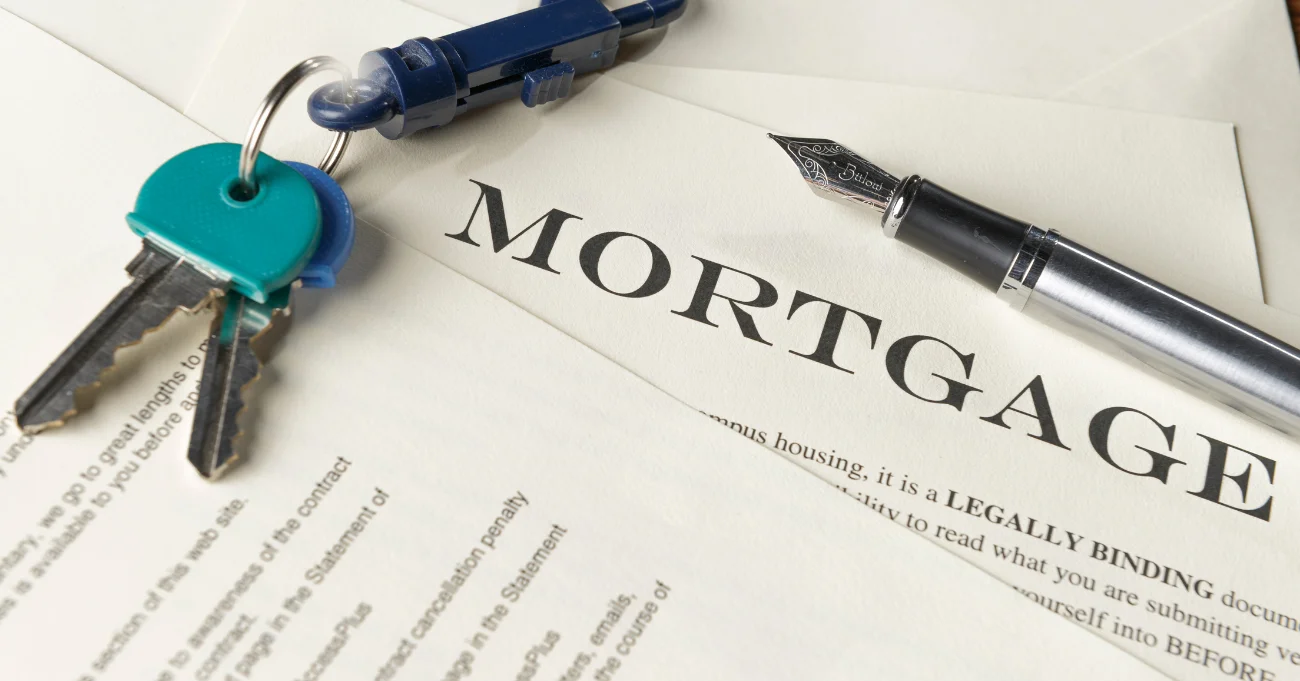Unlock Your Home’s Potential With This Ultimate Home Equity Loan Guide
If you own a home, you may be sitting on home equity that you didn’t even know about. With an average mortgage-holding homeowner holding $299,000 in equity as of early 2024 and interest rates expected to drop soon, leveraging your home equity can be a smart financial move. Home equity loans are an easy, convenient way to access this equity, so you can use the cash however you please.
This complete guide will take you through the ins and outs of home equity loans – from how they work to whether they’re the right choice for you.
What Is a Home Equity Loan?
A home equity loan is a type of loan that’s secured by your home since it allows you to borrow against your home equity. The loan proceeds are usually given to you as a lump sum with a fixed interest rate and repayment term, meaning you pay the same amount each month over the life of the loan.
Home equity is the difference between the current market value of the home and the outstanding balance on the mortgage. To calculate your home equity, you can subtract the amount you owe from your mortgage from your home’s current market value – this amount is the equity that can be used to secure the loan. For example, if your home is worth $500,000 and you owe $200,000 on your mortgage, you have $300,000 in equity, which could be leveraged for a home equity loan.
What Can I Use a Home Equity Loan For?
With a home equity loan, you have the flexibility to use the borrowed cash for a variety of different purposes. Considering that in 2022 we saw inflation levels higher than they’ve been in the past 40 years, having access to extra cash can be a smarter way to finance large purchases at a lower interest rate compared to unsecured loans.
Some common uses for a home equity loan include:
- Home Improvements: Whether you’re renovating your kitchen or adding a bathroom, a home equity loan can provide the funding needed to upgrade your home.
- Debt Consolidation: If you’re struggling to manage more than one loan or credit card with high-interest rates, a home equity loan can be used to consolidate your debt into a single loan with a lower interest rate.
- Education Expenses: For students or parents looking for ways to pay for tuition, books, or living expenses, a home equity loan can offer a flexible and potentially less expensive option compared to other student loans.
Beyond these common uses, home equity loans can also be used for investment opportunities such as:
- Real Estate: Investing in additional properties, rental homes, or commercial real estate.
- Stocks and Other Ventures: Funding personal business ventures, investing in stocks, or pursuing other investment opportunities.
An important thing to keep in mind is that a home equity loan is backed by your home as collateral, meaning if you can’t repay your loan, you can be at risk of foreclosure. While leveraged investing can give you greater returns, it can also come with additional risk if the investment fails. Before spending your home equity loan proceeds, make sure to carefully consider the risks and benefits.
Types of Home Equity Loans
If you’re thinking of getting a home equity loan, you’ll first want to understand what types are available. The two main types of home equity loans are:
- Fixed-Rate Home Equity Loans: A fixed-rate home equity loan is the most traditional type, offering a fixed interest rate and consistent monthly payments over the life of the loan. Since the monthly payments remain the same, it’s a popular choice for borrowers who want stability and predictability in their budgeting. With this option, borrowers don’t need to worry about interest rate fluctuations and their monthly payment potentially increasing.
- Variable-Rate Home Equity Loans: Variable-rate home equity loans come with an interest rate that can change over time. Usually, interest rates are determined based on an index, such as the prime rate. These loans could start with a lower initial interest rate compared to fixed-rate loans, but the rate can increase or decrease during the life of the loan. This can make monthly payments less predictable, but borrowers who are comfortable with some risk can take advantage of potentially lower interest rates.
Home Equity Loan Qualification Requirements
The exact home equity loan qualification requirements may vary by lender, but generally, you’ll need:
- Significant Home Equity: Most lenders require you to have at least 15-20% equity in your home, meaning your loan-to-value (LTV) should be 80% or lower.
- A Good Credit Score: Most lenders look for a credit score of at least 620, though higher scores could help you qualify for better interest rates and terms.
- A Stable Income: Lenders will evaluate your income to make sure you have the income to repay the loan.
- A Low Debt-to-Income (DTI) Ratio: Lenders take your DTI into account to assess if you can manage additional debt. Most lenders prefer a DTI ratio of 43% or lower.
- A Property Appraisal: During the closing process, the lender will likely need a property appraisal to determine the current market value of your home to confirm there’s enough equity to secure the loan.

Meeting these requirements can help you increase your chances of qualifying for a home equity loan, but keep in mind that each lender could have slightly different criteria so be sure to check with each lender you’re interested in about their requirements.
Pros and Cons of Home Equity Loans
Pros:
- Typically fixed interest rate provides predictable monthly payments
- Lump sum payment upfront is ideal for large, one-time expenses like home renovations or debt consolidation
- Lower interest rates than other forms of unsecured debt, such as credit cards or personal loans
- Fixed repayment term can help with budgeting and long-term financial planning
- Lower closing costs compared to a cash-out refinance
Cons:
- Risk of foreclosure if you fail to make payments
- Reduced home equity
- Less flexibility compared to a HELOC
Home Equity Loan Alternatives
While home equity loans are a popular option for tapping into your home equity, they’re not the only way you can access cash. There are several alternatives that you can consider based on your financial situation, such as:
- Home Equity Line of Credit (HELOC): A HELOC is a flexible alternative to a home equity loan since it’s a revolving line of credit that you can draw from as needed, similar to a credit card. HELOCs usually come with variable interest rates, which means that your payments could fluctuate over time depending on interest rate changes. A HELOC is ideal for those who don’t need all the cash upfront and prefer to borrow only what they need when they need it.
- Cash-Out Refinance: A cash-out refinance replaces your existing mortgage with a new, larger loan, giving you the difference in cash. This option allows you to access cash, while also potentially securing a lower interest rate on your overall mortgage if the market rates have dropped since you got your initial loan. A cash-out refinance is ideal for homeowners looking to consolidate their debt or finance a large expense, like a renovation.
- Personal Loan: Personal loans allow you to access cash quickly, even if you don’t have significant home equity. However, personal loans aren’t secured by any collateral, meaning they typically come with higher interest rates compared to home equity loans. While personal loans can be used for many different purposes, the higher interest rate generally makes them less attractive for larger expenses.
Home Equity Loans vs. Home Equity Line of Credit (HELOC): What’s the Difference?
Home equity loans and HELOCs are two popular options for homeowners who are looking to leverage the equity they’ve built in their property, but they’re structured quite differently. Below, we’ve summarized the key differences between the two, so you can determine which option better suits your financial goals.
| Home Equity Loan | HELOC | |
| Payout | Lump sum provided up front | Revolving line of credit that can be drawn from as needed |
| Interest Rate Structure | Typically fixed interest rate | Typically variable interest rate |
| Repayment Terms | Repayment begins immediately and terms range between 5 to 30 years | Interest-only payments required during draw period (5-10 years) and both principal and interest payments required during repayment phase (10-20 years) |
| Best Use Cases | Ideal if you need a large, one-time sum of money with predictable repayment terms | Ideal for ongoing expenses or situations where the cost of something is uncertain |
Home Equity Loans vs. Cash-Out Refinance: What’s the Difference?
Another popular option for homeowners to unlock their home equity is using a cash-out refinance. While both a home equity loan and cash-out refinance give you the loan proceeds as a lump sum in cash, they operate differently. Again, we’ve summarized the main differences between these two options below to help you decide which one suits your financial goals.
| Home Equity Loan | Cash-Out Refinance | |
| Loan Structure | Separate, second mortgage on your home | Replaces your existing mortgage with a new, larger one |
| Payout | Lump sum provided up front | Lump sum provided up front |
| Interest Rate Structure | Typically fixed interest rate | Typically offers a lower interest rate compared to a home equity loan and can either be fixed or variable depending on the new mortgage terms |
| Repayment | Repayment begins immediately and the payments are separate from your original mortgage | Repayment begins immediately and there’s only one payment – the one for your new mortgage |
| Closing Costs | Lower closing costs that can range from 2-5% of the loan amount | More substantial closing costs that can range from 2-6% of the total mortgage amount |
| Best Use Cases | Ideal if you need a large, one-time sum of money while still keeping your existing mortgage | Ideal for accessing cash at a lower cost of borrowing while also lowering the interest rate on your mortgage |
What Type of Home Equity Loan Is Right for You?
Choosing the right type of home equity loan is an important decision that can impact your financial well-being for many years. The best option depends on factors like your financial goals, risk tolerance, and current financial situation.
Your financial goals and the main reason for borrowing should be one of the first factors you consider. Are you planning a major home renovation or consolidating high-interest debt? For a specific, one-time expense, an option that gives you a lump sum amount upfront could work best – like a home equity loan or cash-out refinance. If you anticipate that you’ll need cash over time for ongoing expenses, a HELOC might make more sense for you.
Next, think about your risk tolerance and whether you’re comfortable with potential interest rate fluctuations. For those who prefer predictability, a fixed-rate home equity loan or new mortgage with a cash-out refinance might suit your risk tolerance. Whereas, a HELOC with a variable interest rate would work best for those who are comfortable with some level of risk.

Lastly, think about your long-term financial goals. Home equity loans can come with repayment terms ranging from 5 to 30 years. A cash-out refinance replaces your entire mortgage, which resets your mortgage term – this could be anywhere between 10 to 30 years depending on what the lender offers. A HELOC provides a bit more flexibility, allowing you to repay the principal on your own schedule during the draw period (typically 5 to 10 years) until you enter the repayment phase.
At Defy Mortgage, we offer all of these loan options and more to cater to the unique needs of today’s borrowers. Book a call with us today to explore your options with our mortgage experts – we’re excited to hear from you!
Home Equity Loan FAQs:
- What is a home equity loan, and how does it work?
A home equity loan is a type of loan where homeowners can borrow a lump sum of money against the equity they’ve built up in their home, using the home as collateral. The loan typically has a fixed interest rate with a set repayment schedule.
- How is a home equity loan different from a home equity line of credit (HELOC)?
Both home equity loans and HELOCs use your home’s equity as collateral for the loan, but the main difference is that a HELOC is a revolving line of credit that works similarly to a credit card. With a HELOC, you can borrow against your available credit as needed and pay it back over time without a set repayment schedule.
- How do I calculate how much equity I have in my home?
To calculate your home equity, take the current market value of your home and subtract your outstanding mortgage balance.
- What are the qualification requirements for a home equity loan?
To qualify for a home equity loan, you typically need at least 15-20% equity in your home, a credit score of 620 or higher, and a debt-to-income (DTI) ratio of no more than 43%. Keep in mind that each lender has their own qualification criteria, meaning that these requirements may vary.
- How much can I borrow with a home equity loan?
The exact amount you can borrow with a home equity loan depends on the lender, but most lenders allow you to borrow up to 80-85% of your home’s equity, minus any outstanding mortgage balance.
- What are the typical interest rates for home equity loans?
Interest rates for home equity loans may vary depending on several factors like the lender, your creditworthiness, and overall market conditions. The interest rates on home equity loans tend to be much lower than other unsecured loans, such as credit cards or personal loans, making them a great option for debt consolidation or big purchases. However, you can expect a slightly higher interest rate compared to your primary mortgage since home equity loans are considered “second mortgages.”
- What factors affect the interest rate I’ll get on a home equity loan?
Some factors that affect the interest rate you’ll get on a home equity loan include the lender’s requirements, your credit score, and current market rates.
- What are the common uses for a home equity loan?
Home equity loans can be used for a wide range of purposes, including debt consolidation, other investment opportunities, tuition expenses, medical bills, and any other major purchases.
- How does taking out a home equity loan impact my credit score?
Taking out a home equity loan could temporarily lower your credit score because of the hard inquiry required for the application process and the increase in debt, but making the regular payments can help improve it over time.
- What happens if I can’t repay my home equity loan?
If you can’t repay your home equity loan, there’s the risk of foreclosure since the loan is secured by your home.
- How long does it take to get approved for a home equity loan?
Getting approved for a home equity loan can take anywhere between a few days to a few weeks depending on the lender and your application. At Defy Mortgage, we strive to close on your home equity loan and get the cash in your hands as soon as possible.
- What are the fees and closing costs associated with a home equity loan?
The exact fees and closing costs associated with a home equity loan could depend on the loan amount and the lender, but you can expect to pay around 2-5% of the loan amount.
- Can I get a home equity loan with bad credit?
Getting a home equity loan with bad credit isn’t impossible, but it may be more difficult. Try to contact several lenders to see if they can accept your credit score and expect higher interest rates and stricter loan terms.
- What are the risks of using a home equity loan for investment purposes?
Using a home equity loan for investment purposes can be doubly risky since you could lose both your investment and your home if it fails. Remember that you still need to repay the loan even if you lose money on the investment.
- What are the alternatives to a home equity loan?
Alternatives to a home equity loan include cash-out refinancing and HELOCs. Defy Mortgage offers all three options to help you unlock your home equity. Schedule a call with us today to explore your options with one of our mortgage experts.




